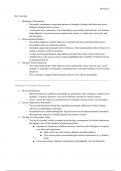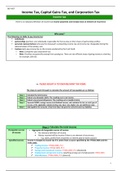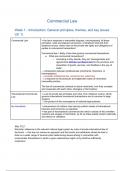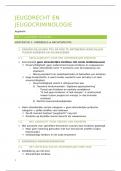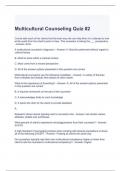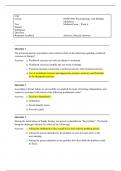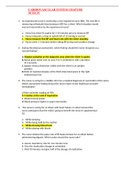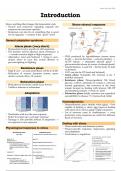College aantekeningen
Psychology 301 - Personality Class Notes
- Vak
- Instelling
The document offers a comprehensive overview of personality psychology, defining personality as the consistent patterns of thoughts, feelings, and behaviors that characterize individuals. It discusses the person-situation debate, highlighting the influence of both internal traits and situational co...
[Meer zien]
